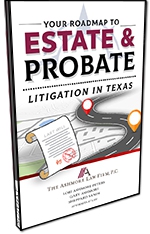
In a recent article, It's Coming: Estate Tax Changes, we discussed Hillary Clinton’s proposed plan for the estate tax. However, at the end, we stated that “It does not matter if you are a Republican or a Democrat, a Trump supporter or a Clinton supporter, one thing is guaranteed: there will be change no matter who is elected.”
Well, change is coming…maybe.
The House GOP’s Agenda
The House GOP’s agenda – A Better Way: Our Vision For A Confident America – calls for a repeal of the Death Tax: “This Blueprint will repeal the estate and generation-skipping transfer taxes. This will eliminate the Death Tax, which can result in double, and potentially even triple, taxation on small businesses and family farms.” So, how likely is it that the estate tax will actually be repealed?
The House and Senate Votes
To begin, it is important to understand how the politics of a repeal of the estate tax might actually work. Currently, Republicans not only control the Presidency, but they also hold 52 seats in the Senate and a significant majority of the seats in the House of Representatives. This is important because, with a majority in the House, the Republicans can easily push through the tax changes they want. However, the voting protocols in the Senate are different than the House and it is subject to the Byrd Rule. In the end, Republicans need 60 votes to get through the Senate and it is becoming increasingly unclear as to whether or not those votes are available. Additionally, while repeal could be passed through reconciliation, that process comes with strings attached.
What Planners Need to Know
The key issue for planners, financial or otherwise, is determining what kind of planning should be undertaken before the end of this year and early next year. Some clients have chosen to put any and all planning on hold due to the current political uncertainty. Other clients are choosing to move forward, albeit cautiously. However, not moving forward with any kind of planning is a mistake. While there has been much discussion regarding a repeal, it is possible that the estate tax will not be repealed at all. In that case, if planners are not actively working with their clients to create a proper plan to meet their goals and objectives, then the client will be left without any sort of protection.
The Byrd Rule
If the Byrd Rule is in effect, planners should continue to encourage their clients to engage in estate planning. If the estate tax is repealed and then reinstated in four years – which could happen considering the Country’s political history - any planning opportunities that were not taken advantage of now may be lost.
Trump’s Proposed Plan for Capital Gains Tax
Finally, if the estate tax is repealed and President Trump’s proposed plan to instate a capital gains tax on an estate of more than $10,000,000 is put in place, some clients will be impacted and some will not. Although this was a proposal discussed during President Trump’s campaign, the blueprint released in June of 2016 is silent on the subject. This means that it is unclear whether this tax would be triggered automatically upon death or when the beneficiaries dispose of any assets. However, planners should keep this in mind when talking about investment and asset protection options.
In short, President Trump and the Republicans are facing an uphill battle. It is up to the planners to have frank discussions with their clients regarding the pros and cons of continuing to plan. If the cost of planning is reasonable compared to the number of assets involved, then there is no reason for planning to cease.
Do You Need To Speak With An Experienced Estate Planning Lawyer In The Dallas Area?
If you need to speak to an experienced estate planning attorney please contact us online or call our Dallas office directly at 214.559.7202. We help clients throughout the Dallas area with all of their estate planning needs and look forward to helping you.


